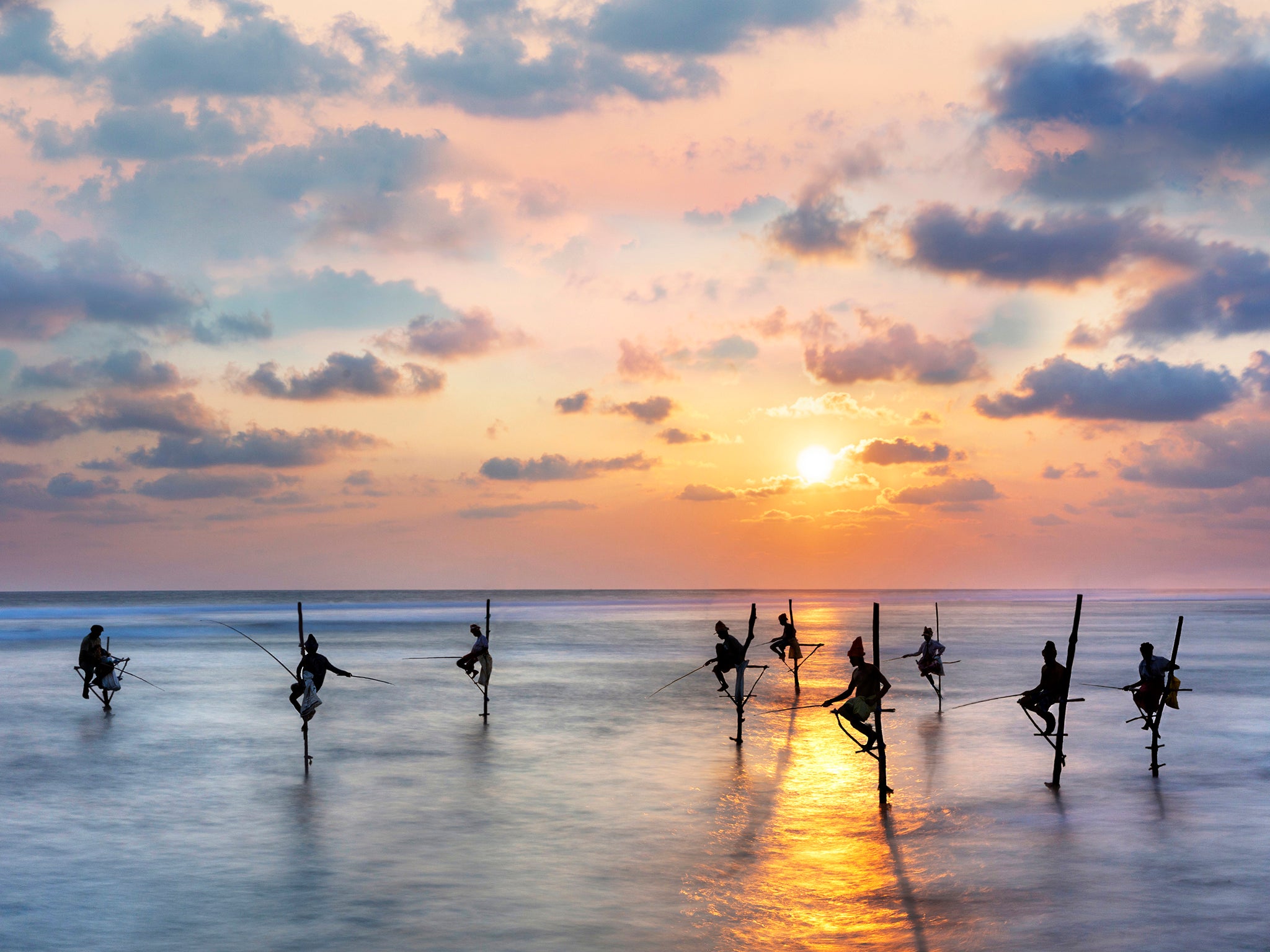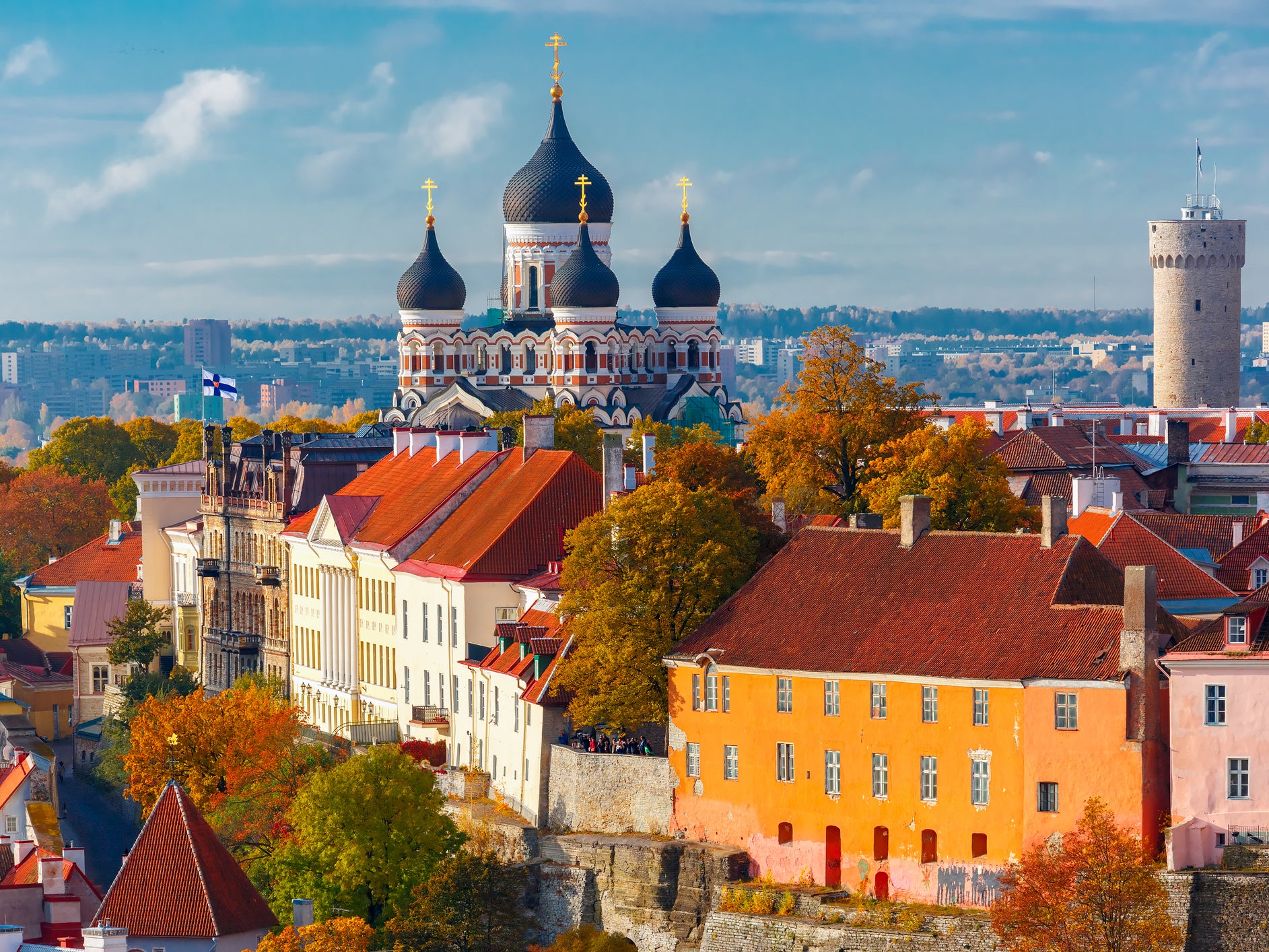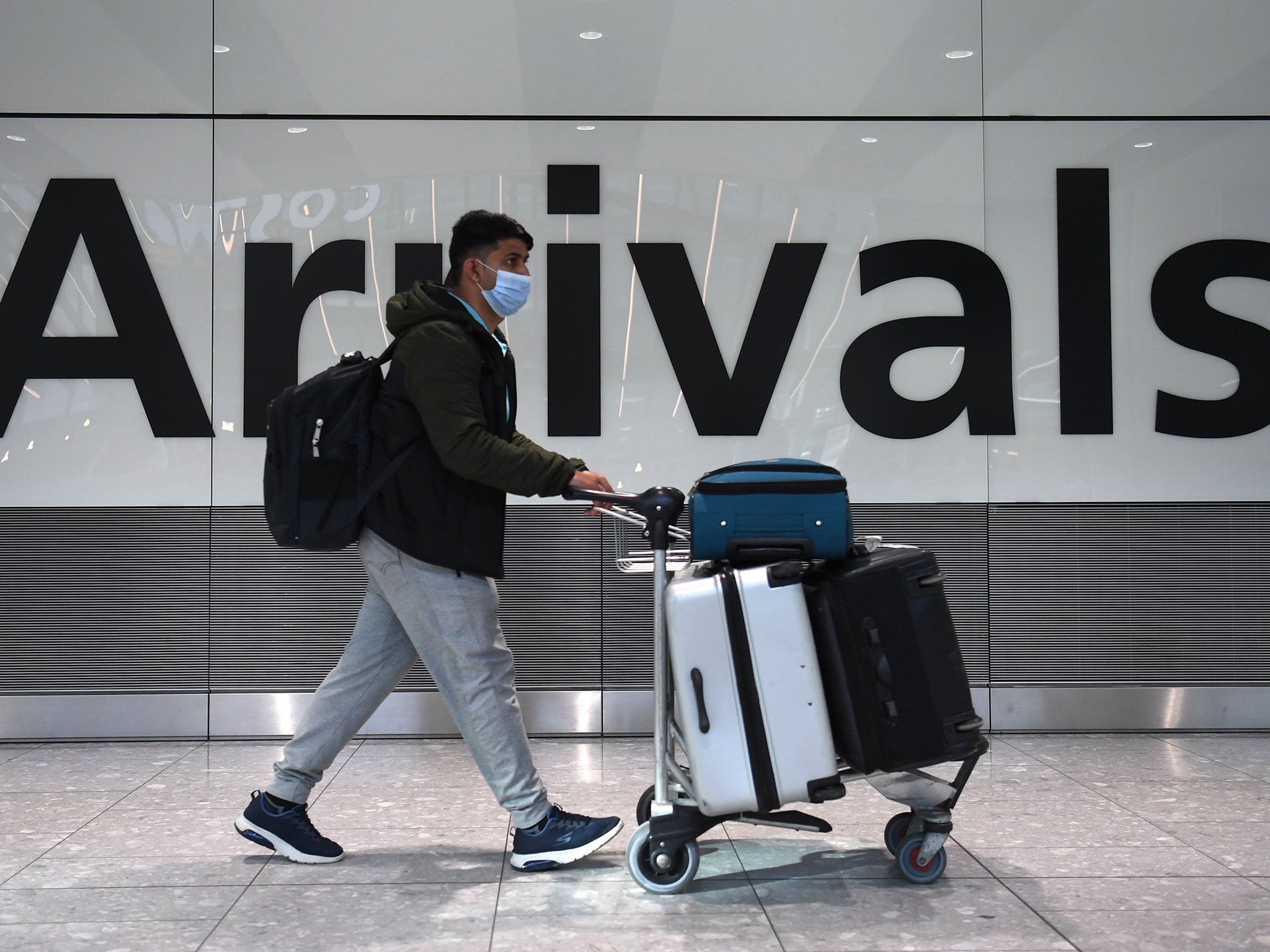Will I be able to fly to Sri Lanka to begin my new life?
Simon Calder answers your questions on starting over abroad, vaccine passports and hotel quarantine


Q I’m a British citizen, currently in the UK. My partner is Sri Lankan and living in Sri Lanka. We haven’t seen each other since October 2019. We want to purchase a home in Sri Lanka and register our notice of marriage at the British High Commission in Colombo.
Sri Lanka has just opened to allow UK citizens to apply for visas. But can I go now during this lockdown? I’ve read all the government advice and seen you are able to travel for legal obligations, weddings, property buying/selling and support bubbles. I feel like I am qualified to go, but I am scared of being turned away at Heathrow fined and losing all the upfront quarantine/flight costs. I obviously would be following all PCR and quarantine rules.
Name supplied
A I understand your concerns, but I hope I can put your mind at rest. On 27 January, the home secretary said: “It is clear that there are still too many people coming in and out of our country each day.” Priti Patel said that travel should be for “only the small number of people for whom it is absolutely essential”. She told parliament: “We will introduce a new requirement so that people wishing to travel must first make a declaration as to why they need to travel. This ‘reason for travel’ will be checked by carriers prior to departure.”
This was backed up by an announcement warning of an increased police presence at ports and airports, fining those in breach of the stay-at-home regulations. “Anyone who does not have a valid reason for travel will be directed to return home and may face a fine,” the Home Office said.
Sounds fierce. But when I asked the Home Office what had happened to the “reason for travel” requirement, I was told it is still a work in progress. It seems to have the same status as the prime minister’s yet-to-be-fulfilled promise last August to simplify the passenger locator form.
In the unlikely event that you are challenged, all you need do is produce the bundle of legal documents that you are no doubt assembling. It might include appointments with estate agents in Sri Lanka, correspondence with the British High Commission about the intention to register your forthcoming wedding, and evidence about the length of your relationship – perhaps photographs of you and your partner before lockdown. But don’t fret about a full-scale interrogation: you clearly have the right to travel.
Finally, my best wishes for your future together on this wonderful island.

Q You and others have been discussing a possible vaccine passport to enable us to travel abroad. If this comes into force this summer so that we can travel, what about all the under-thirties as they are unlikely to be able to travel until September? How can you possibly book a holiday if you don’t know when you will have your vaccine?
Alyson G
A Nations across Europe and the world are striving to find a balance that will enable them to resuscitate their tourism industries while simultaneously seeking to minimise harm to their citizens.
Offering fast-track access to travellers who have been vaccinated is already a strategy designed to boost arrivals without adding significantly to risk. Estonia, Georgia, Poland and Romania have removed barriers to people who can prove that they have received both doses of a coronavirus vaccine.
For people in the UK that is currently irrelevant since holidays are illegal. But once British holidaymakers are able to travel once more, I don’t anticipate many “no jab, no entry” policies. Instead, I predict that countries such as Greece will offer a free pass to those with appropriate proof of vaccination, while others may need to present evidence of a pre-departure Covid test or take one on arrival. “Jab or test” could prove to be the order of the day in the Mediterranean this summer.
You also raise a good point about the wisdom of booking a holiday if you don’t know when you will get your jabs. Some prospective travellers will hold back until they get their vaccination slots: both to know when they will be regarded as low risk (generally two or three weeks after the second dose), and to avoid the inconvenience of being in Astrakhan when they are due for the AstraZeneca jab.
On the latter point: I have asked the big airlines and holiday companies, and they say their currently flexible policies should be able to help deal with any diary clashes.

Q Someone tagged you in on Twitter saying: “Took your advice, Simon, and flew Maldives-Doha-Heathrow to avoid hotel quarantine!” The rules are there for a purpose. Surely it is disgraceful telling people how to avoid the quarantine rules?
Name supplied
A I continue to urge every traveller to follow the Covid rules scrupulously. In this case, a gentleman contacted me from the Maldives about his flight home, which was on Emirates. A flight ban from the UAE was imposed by the UK on 28 January, at the same time as the country was placed on the “red list” of nations perceived as high risk.
Many passengers due to travel via Dubai to England have been offered seats on the Dubai-Dublin flight. From the Irish capital, they are expected to continue by air to England. But the consequence for anyone changing planes at Dubai airport who then continues by any route is 11 nights in hotel quarantine. The fact of arriving via Dublin is irrelevant.
In addition, this routing marginally increases the risk of contracting coronavirus, due to the additional connection, so is best avoided.
Hotel quarantine costs £1,750, and there is no consensus that it is any safer than self-isolation at home. Indeed, assuming the passenger follows the rules on home quarantine scrupulously, the risk is arguably lower since there should be fewer interactions with outsiders. Australia, which has had hotel quarantine since March 2020, has had many outbreaks attributable to arriving passengers infecting hotel and security staff.
So I told the gentleman about the alternative: 10 days of self-isolation at home that applies to arrivals from every country not on the red list. Just as all arriving travellers must undergo quarantine, whether in a hotel or at home, they must all undergo a stringent testing regime: evidence of a negative Covid-19 test result taken up to three days before departure to the UK, as well as mandatory tests on days two and eight of their stay.
Scotland has tougher rules, requiring all passengers on all international flights to the country to go into hotel quarantine. If you feel the government’s rules for travellers to England are too weak, I suggest you take it up with your MP.
Email your questions to s@hols.tv or tweet @simoncalder


Join our commenting forum
Join thought-provoking conversations, follow other Independent readers and see their replies
Comments